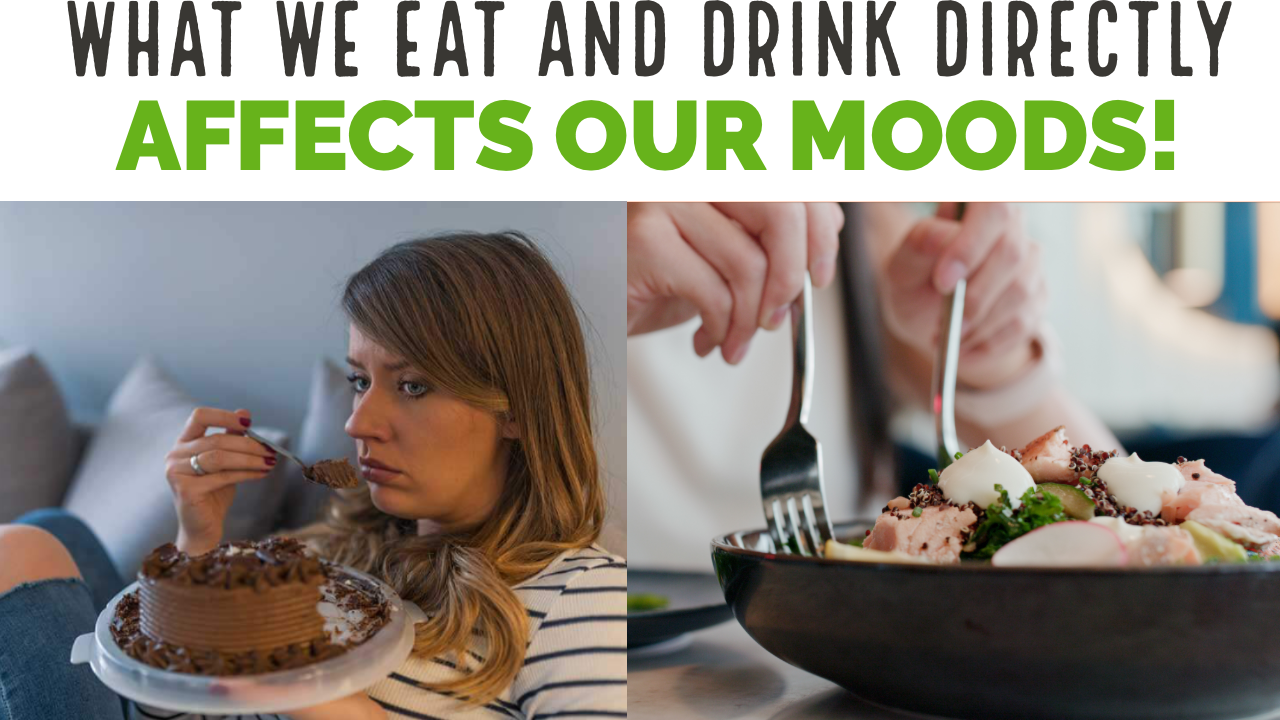
What we put into our bodies directly affects how we feel. Eating junky, ultra-processed foods that we often think of as feel-good or "comfort foods" can definitely have the opposite effect on our bodies. Junk food is proven to make people feel bloated, depressed, anxious or can even cause headaches, upset stomach and low energy.
Feed yourself that kind of food regularly, and your general mood will be affected in a negative way... regularly. Making things worse is the fact that these types of foods are often made with undesirable low-grade, and even dangerous ingredients.
The good news is... there are foods that can make you feel GOOD! The following foods are mood boosters:
- Avocados
- Wild Salmon and other quality fish
- Nuts
- Berries
- Green Tea
- Chocolate (dark)
- Spinach & other leafy greens
- Coffee (1-2 cups)
- Fermented Foods
**It is worth noting to avoid or limit caffeine if it makes you anxious or produces other negative side effects. Some people can be very sensitive to caffeine - figure out what works for you!
Along with poor diet choices, poor eating patterns can also cause mood swings and general feelings of being unwell. Blood sugar fluctuations and nutritional imbalances are things that we can take control of to help ourselves feel better.
- Don’t skip meals. It’s a great way to give yourself low-blood sugar symptoms.
- Don’t cut out entire food groups. Eat the colors of the rainbow. You need a full day of essential nutrients that come from a variety of nutrient dense foods such as zinc, B vitamins, vitamin D, magnesium, and omega-3 fatty acids.
- LIMIT refined carbohydrates drastically. These include baked goods and candy. These foods have very little, if any, nutritional value and lead to blood sugar spikes and falls.
- Include protein at each meal/snack. It will keep you feeling satisfied longer and help you to avoid low blood sugar levels.
- Drink plenty of water. Dehydration will leave you feeling fatigued and hungry. This is a huge mood booster in addition to having major health benefits.
- Maintain a healthy weight. Obviously, you will feel better if you are at your optimal weight. If you are overweight, plan to lose pounds in a slow and steady manner. Talk to your doctor if you need to lose more than 20 pounds. In addition, there are many programs (such as Weight Watchers), apps (such as Fitness Pal), books, and videos to keep you motivated and give you direction. Stay away from fads and quick weight-loss programs.
Of course everyone can benefit from eating healthy, but if you a prone to low moods and or depression/anxiety, do yourself a favor and focus on food and drinks that help boost your mood rather than focusing on "comfort eating," which will just perpetuate the low mood cycle.
Note: “Following a healthy eating plan can keep you energized and help you to feel your best. While good nutrition is an important component of your emotional well-being, it is not a substitute for proper medical care and treatment. If you have concerns about your mental health, talk to your health care provider. (https://www.mentalhealthfirstaid.org/external/2018/03/relationship- food-mood/).
